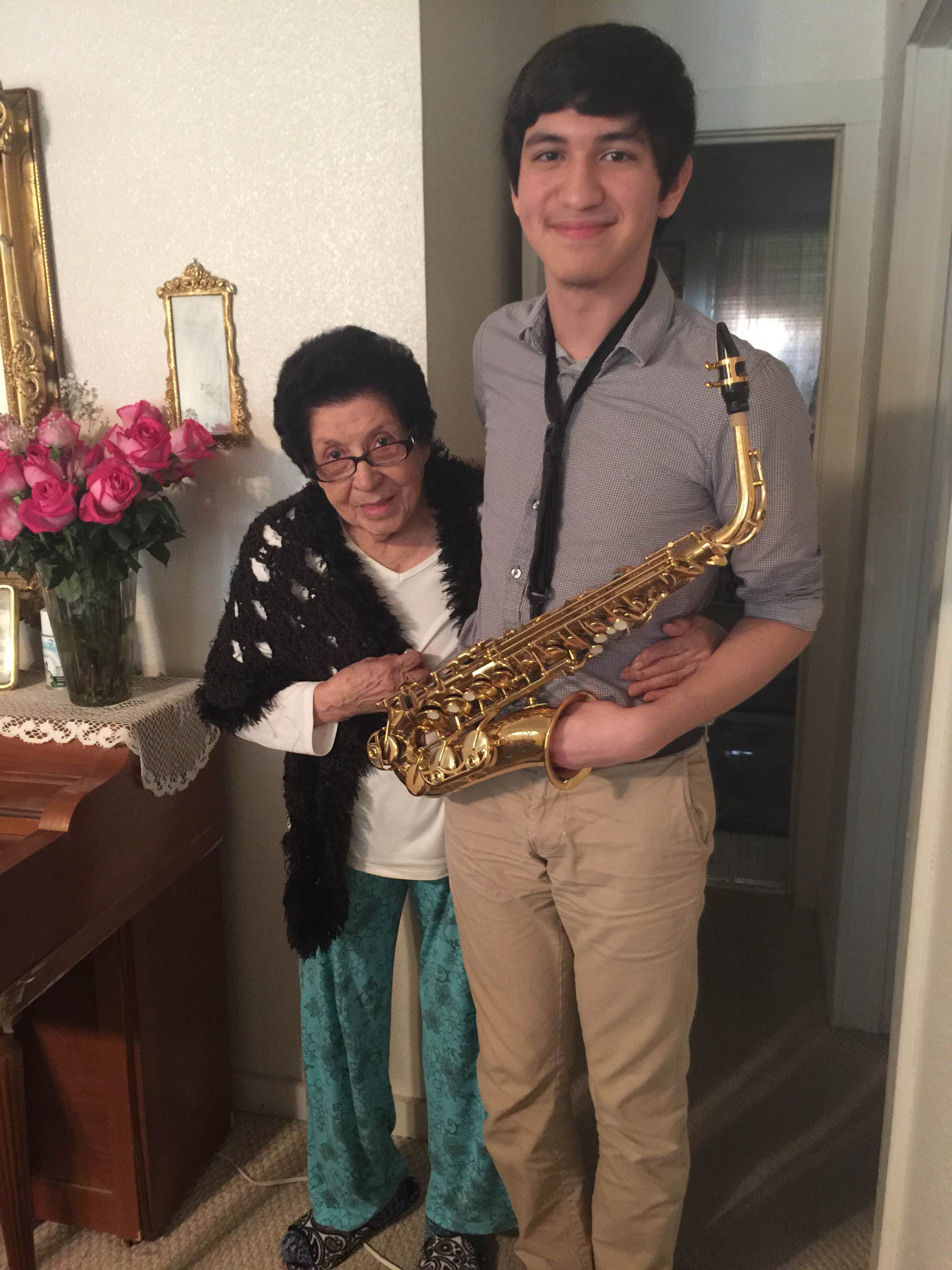TRANSCRIPTION
What are your earliest childhood memories?
Oh, I remember my daddy and my momma had me spoiled. My daddy wanted to get me real nice shoes and everything. There's a picture of me and my brother of us on the porch over there where you and your grandma live. That's where we grew up. He was about a year and half older than me - my brother. We were together right over there. I remember that picture and I will never forget.
How old were you?
I must've been - my brother passed away when he was nine years of age, so I must've been about… 6 years.
When did you start school?
Oh, let me tell you! We were five years of age. My cousin Beatrice, myself, and some friends of mine by the name of Yonicia Chavez and Gregoria. We were sitting on the ground because that was the first picture of the first class of the mission [Espada]. It dates 1918.
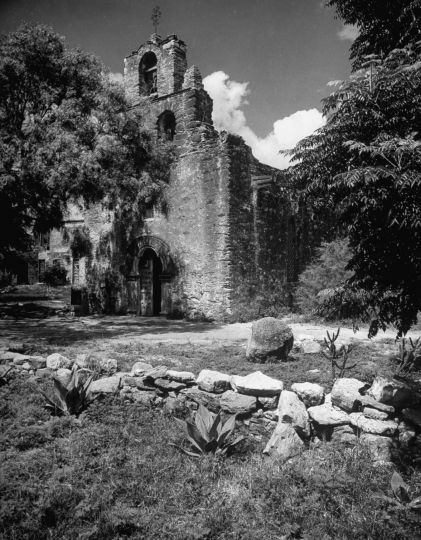
So your class was the first class?
Yes, here at the mission. But we were in school, but the nuns taught us there. But in [another] picture, it was all my relatives and friends: the Balners, the Pesinas, the Masperos, the Greckos, my brother, the priest Carmelo Garcia - he's passed away. Everybody was there! The nuns were Sister Patricia, Mother Pauline, and Sister Simplicia. Sister Simplicia was my music teacher. And the mother superior was Mother Pauline, and Sister Patricia was a teacher. They're from the Incarnate Word nuns. But they liked us to go to their house where they lived. Where the parkway is, that's where the nuns used to live. You know where the hall is? Back there was a building. There's where the nuns lived, and we were five years of age when they wanted us to go with them over there. They had the kitchen; they had a beautiful dining room; there's an archway going to the living room; that was their living room; and they had three bedrooms - the nuns; and on the back of the building was a picket fence filled with nothing but planted roses around there. And they had an outside toilet like we all had. That's what I remember then. It was very very quaint - very very pretty. And then, you know across from where Tio Joe lived? That's the class that had the fifth and sixth grade. Then there were the classes of the first, second, and third grade were right now where the rectory is. And we were the oldest ones. It was seventh, eighth, and nine where the office is right now. We used to have a lot of fun. When we were in school, the first thing we did: go to mass. The kneelers - we didn't have no kneelers on the benches. It was just a regular bench. And when we'd go to Holy Communion, we had a beautiful rail and we had a three level altar. They took that away. They took the thing away from where you'd receive Holy Communion. We had a choir of boys and girls and the sister that was in charge was Sister Simplicia. She would give us a slice of lemon when we were going to start singing. And then when we'd get out of church, we'd line up and we used to sing The Star Spangled Banner. After that, we'd walk to class. Then at noon, we used to walk to the house for lunch. So, you know, it was very nice. At that time. But everything has changed because there are no arches - no nothing. The priest's house, it was two story home. The downstairs was a kitchen and a living area. The upstairs was a big screen porch! And the bedrooms were on the second floor. We used to clean it every Friday. Five girls cleaned it. Five girls cleaned that house and five girls cleaned the church. That's the way we were trained in school. But we had [drama] programs in school. I started taking piano lessons and I used to play in all the programs at school. When we finished school, we were only three graduates. It was Beatrice, myself, and Alice. Only three.


When did you graduate?
I graduated from the ninth grade. And from there on, mijo, was work! I had to go work.
Where did you work?
I didn't stay here with my dad. I started working with my aunt. They had a funeral home. And they told me if I wanted to work answering the phone, and I said yes. And I lived with them. And then as I got older, I went to work for Wolff and Marx in the hosiery department.
You worked where?
At Wolff and Marx. It was a department store. I worked at Wolff and Marx and then Joske's . Wolff and Marx was on Main and Houston and Joske's was further up. From there on, I worked for the Incarnate Word nuns for eight years.
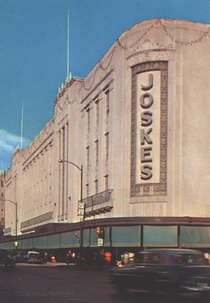
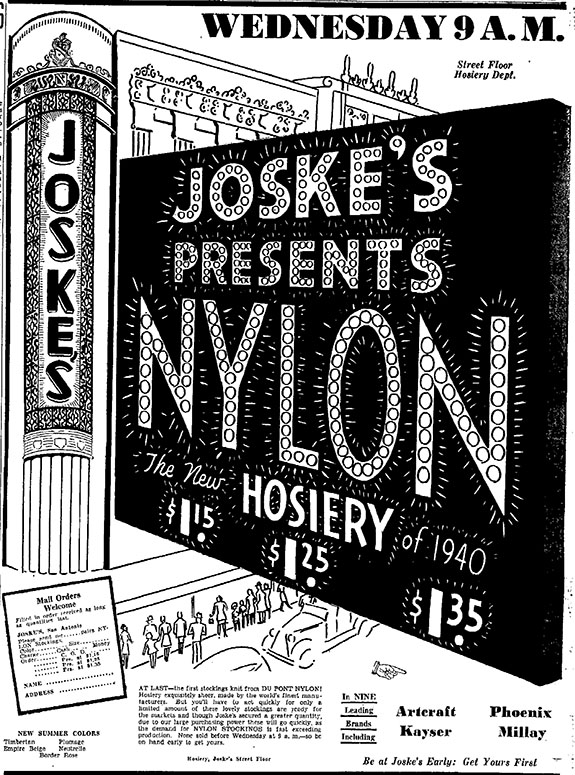
What did you do?
Help with everything, making salads… They paid only fifteen dollars a month! Fifty cents a day! And I worked for them eight years of my life. Five years, I stayed there; and the other three years, I stayed with my cousin, Alice. When I started, it was fifteen dollars a month. And then when I went to live with my cousin Alice, they started paying me twenty-eight dollars. I used to take the bus on Pruitt Avenue - the College Garden Bus. And I would transfer to the Broadway bus and leave me over there on Hildebrand and Broadway. That was for the last three years I worked for the Incarnate Word. If you break a cup or you break a saucer, they'd deduct it from your pay. Tia Lena, one day, she lost it. She broke a cup and she called her daddy and told him, "You come for me. I don't wanna work here." And to shine the church, it was with the brooms. Then they brought in that big thing that you shine the floors with - the buffer! Oh, our heads would tremble. But we had to shine. That's how hard they worked you. And you only see your father and your mother every fifteen days. Then when we would get dressed, the nuns would go around to see if there was dust. And if they found dust, even if you were dressed, you had to go upstairs and dust. That's the way they were, very strict. They had Dubuis Hall where the college girl boarders lived and the high school girls were on the second floor where the nuns lived. And on the third floor, the nuns lived. And on the first floor was the chapel. And we were underground in the basement. That's where our dormitories were. And they would check us every night at nine o' clock to see if we were there because we were under their responsibility. Then I quit. And then I remember I met Mrs. Flores - a good friend of mine - and she said "Are you working?" I said "No." "You wanna work?" "Yes." And then she said, "I can get you in with Mr. Lefant." He had a Mission Finance on Navarro Street. I went to work with them. I used to file, and when she wasn't there and somebody would come in to make a payment, I used to make the receipts. That's where I worked for two years. Then me and my husband got married in 1942 - October the 17th. He left to the service three days after I got married! My mother-in-law was working for The Lone Star Seed Company and she called me and said, "You wanna work here?" "Yes." I went to work for the Lone Star Seed Company and retired from there in 1972 earning $1.60 an hour. That's what they used to pay us. When I retired from there, my Social Security was only $97 a month. It has been going up and up and up. But I don't get very much Social Security. [My husband] Dave left to the service in 1942 and came back in 1945.
Where did he go?
He was in the Pacific.
In the Second World War?
Yes. They drafted him and we were married here three days. I never saw him until 1945. He got his discharge in Fort Bliss, El Paso. And then when he came back, well actually, before he had left, he had put in an application at the post office. When he came back, he went to renew it. And they gave him the mail carrier outside. He had malaria overseas. He got real sick and had malaria here. And I remember Uncle Joe said, "He's not gonna make it. You better be prepared." But he told me what to for him and I did then he got over it. The government gave him 100% and then they took it away from him. So he went back to the post office and put him inside. That's when he was pitching mail. He made a big thing with holes; you had to know the zip codes. Then he came out in the paper; they got a picture of him. He was the best pitcher of mail at the post office! Then from there on, he was sent to Norman, Oklahoma. They wanted to teach him for the management position and he got it. He was the general foreman of mail for the post office. And that's where he worked until - he passed away in 1985. We were married 43 years. 43 years… He died in 1985 on December the 7th.
Back to when you were in school: What did you and your friends do for fun?
Oh we did everything: crocheting, sewing; we'd go to river and get those shells with the oysters, pull 'em out, clean 'em up, and put little drawings in them. I got a blue medal for my penmanship in writing [class]. And I had the certificate too. And you live and learn with the nuns; what they teach you, you don't forget because they were very strict. You had to have done your homework. If not, you had to stay after school. They were very very strict. Very very strict… What you learn from them, you don't forget because they don't let you get away with anything. One time, I was taking my music lesson and I had to have a lesson the next day but I used to love to play ball and she hit me on my hand because I couldn't [play the part I was supposed to practice]. That was Sister Simplicia. But she was a good music teacher! She got me a book with all the chords, and if you know them, you can play almost anything. Then she showed me how to play the organ. We had an antique one with all the pedals you had to push down. I used to play all the hymns, all the big masses and everything; she showed me! As we grew, and we wanted to go to a dance, they wouldn't let us go unless we went to a rosary [mass] on Saturdays, so I had to play the hymns before we left. My life was good but we had a hard time because we didn't have no transportation. When I used to work for the Lone Star Seed Company, my husband would come in at 12:15 from the post office. I had to his dinner on top of the table and before I left, I would make coffee and toast. He used to call me, "Did you eat lunch? Don't worry, I'll pick you up." And we used to go eat at Concepcion Park. That was our life. And from there on, I retired in April of 1972. I never went back to work again.
When you were a child, did your parents have a car?
We didn't have no transportation at all - nobody.
Y'all walked everywhere?
If you wanted to go anyplace, my aunt would take all of us if we wanted to go to town. We'd walk all the way down Chavaneaux Road. No gravel - dirt road. It was nothing but pastures on both sides. And she would always say, "If you wanna use the toilet, just go out in the pasture." Anyway, we'd go all the way down [Chaveneaux] to 281. And she knew a lot of people from Losoya and everywhere. They would give us a ride to where St. Leo's Church is on South Flores. There's where we'd stop. But we had no buses; we had rails - little trollies. And we would get in there and go to Brackenridge Park and ride the burros! [laughs] And there was an ice cream parlor and we ate ice cream before we left. And then there was a lady that had a car. They called it The Jitney! And she would charge us twenty-five cents and brought us home.
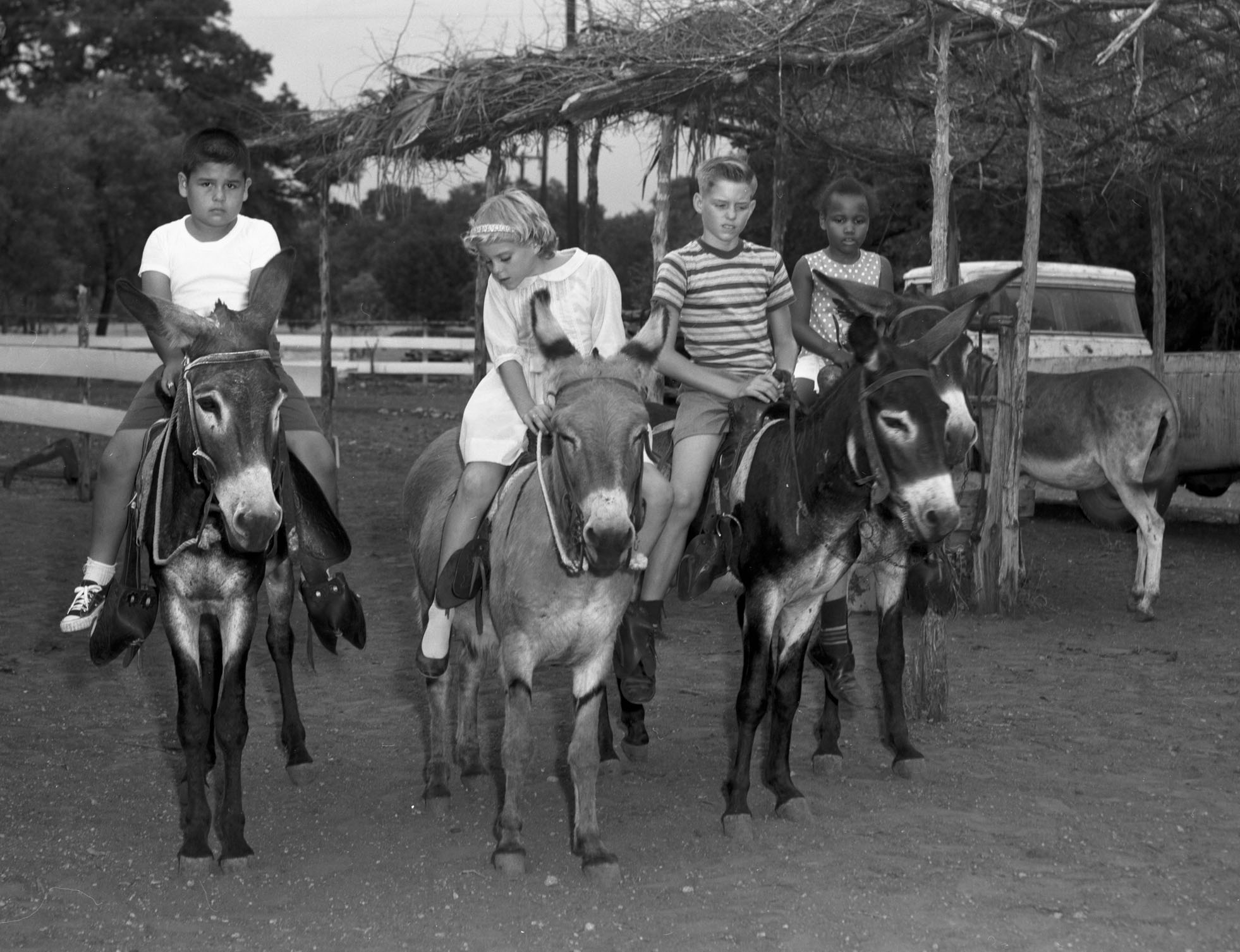
They called it the what?
Jitney! The Jitney! The lady had a car named Jitney and we would ride with her for twenty-five cents to get us home. [laughs]
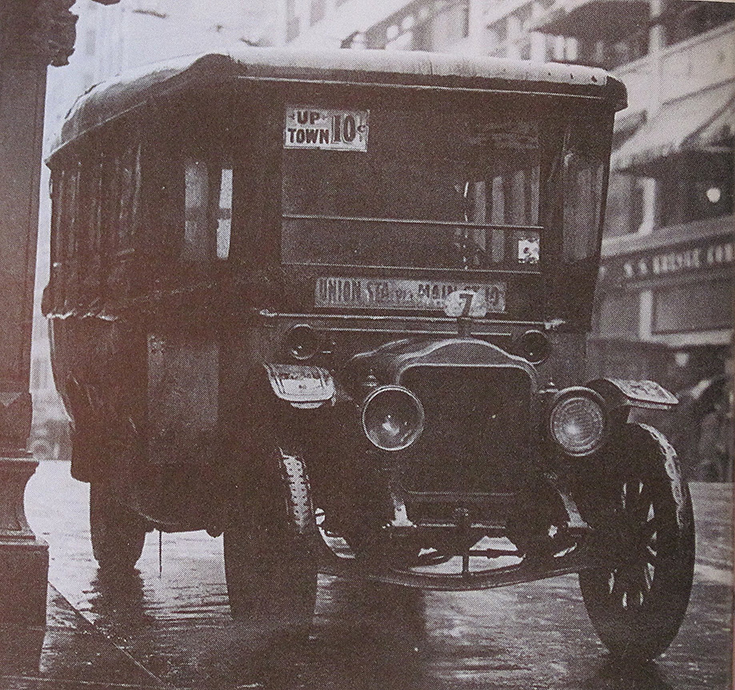
Okay. [laughs]
And during the [second world] war, we worked for Mr. Loft packing fruit cake in cans to send to the service overseas. He said, "I'm gonna put you in the front. That way, you take orders." We all worked. And you know what we had to do? We walked all the way to the Brooks Field gate every day to catch the bus at seven o' clock! And then in the evening, if you weren't on Commerce and Navarro to catch the bus at five o' clock, you would have to walk. From there, we used to catch the bus on Navarro and Commerce and they would get us down to the big gate at Brooks Field. And then we had to walk all the way home without shoes. But we didn't have transportation. Daddy had the mules and everything. He farmed. He would leave at one o' clock to go sell the vegetables. Rain or shine. We didn't have no transportation. Uncle Joe, your [great great] grandpa, was the first one to get a truck with a platform.
Do you remember when drinking alcohol was illegal?
Oh, I remember making wine for my daddy. My daddy used to make three big kegs of wine every year and I had to help. You'd have to mash the grapes and my daddy would make three kegs every year. In one, he'd but nutmeg. And every day after school, I'd go and put sugar in the kegs. And one day he said, "When you see the little skins on top of the barrel and you see that the wine is not moving, it's ready to cork. You come and let me know." And he'd sell the wine to the people in the courthouse. They would pick up the wine at two o'clock in the morning because those were the Prohibition days! My grandfather had barrels and they broke all of them! I don't see how they didn't get to my daddy. Daddy would sell his wine, not by the gallon, five gallons at a time. They would pick it up at two o'clock in the morning, so he got rid of it real fast. Then he started making beer and I learned how to help with that… Everything - I remember everything so well. And I used to give Uncle Joe, Uncle Frank, and my dad a haircut. I still have the scissors that I used. I used to give them haircuts every Saturday. Those people would get hair every Saturday! So I remember a lot of things. Sometimes they come to my mind. And I remember how much my dad worked on the farm. I remember Daddy had a big barn and he had three rooms, big rooms, in that barn. He let everyone come and live there - people coming in from Mexico, like the Garzas. He let them live there until they got on their feet. I don't know how they got the property but it's eighty-six acres - from the Pesinas. And your great grandfather said they found a big thing of gold coins. Maybe that's how they got it. I don't know. They left [the barn] and then came Don Ezequiel, Don Elena, Don Domingo died when he was 24. Don Ezequiel used to make charcoal. They left. Then came (inaudibly quickly spoken Spanish) They left. And then came Julio Martinez and Inez Garza. They left. Then the last ones that came to live there that my daddy let them were called Los Morenos. They had a lot of children. The poor lady had a big board where she would make her tortillas - corn tortillas. And then after that, I don't know. My daddy did a lot of good deeds.
Who was your favorite president?
Roosevelt.
Why?
Oh my god, you sound like [my granddaughter] Marcel! She came one day and told me, "Nana, I have to give a report." "On what?" "Depression." I said "Well there's two kinds." I said, "One is people that get depressed. The other, well, we went through it!" We were rationed - everything. We only had three eggs a week. The sugar was on the black market. But we had cows and chickens that helped us. Nobody had jobs! Roosevelt was the best president we ever had! He found the WPA and then is when we all started working and then he got us out of the Depression. When he got real sick, he didn't go to Washington. He had a cottage in Georgia. He told them, "I want to go to my house." And he went. He died of a hemorrhage. That's where he died. But he had a mistress by the name of Lucy. He betrayed Eleanor. But Eleanor wasn't that good either. And then his daughter - their daughter betrayed her. When they sent her, because she was in Washington, she started crying because of the way he betrayed her with the mistress. Anyway, he died and he was sent to Washington in the train. And everybody was crying and wailing and everything. Everybody! And he was buried in New York. He was the best president we ever had! And I told Marcel, "If you ever want to write about another president, you write about Lincoln." And she said, "Why?" Because he stood up for the - they called them the salvajes… savages - the colored people. He got them out of that. They formed a war and he won. That's why they built that monument - Lincoln Monument. And the colored people all go and visit that monument because he was the president that got them out of that. He was a very very good president. He educated himself, he became president, but he was killed. He was at an opera and they shot him in the head. But I'm gonna tell you how it happened. There was a big circle of people and in the center was a lady. She was a mind-reader. And she told him, "You will be assassinated." And he was. There's a picture of him when he was sitting upstairs when they shot him in the back of the head. That's the way he died. And next, even though Clinton was a womanizer, he was one of our best presidents! He served two terms. One time, I told them, "Do y'all know why we celebrate the Fourth of July?" Nobody answered. I told them, "We celebrate it because when the British owned the 13 New England states and we fought for them and we won." And then I told them what the colors of the flag stand for. The red stands for courage; the white stands for innocence; and the blue stands for vigilance and perseverance. And then there's a guy by the name of Key that wrote the Star Spangled Banner. And when I told them, even my grandson looked at me and said, "Where did you get all of that?" From the encyclopedia because when I have nothing to read, I take it to learn about the cultures of other countries and everything. I told them, "Well what kind of teachers have y'all got?!" It's all in there, mijo!
Were there bad presidents?
Oh my god… [sighs] Richard Nixon! He was so dirty. Oh my god… No mas no. He was such a bullsh***er. You know, he quit. In front of all us on the TV. He stood up there and quit. When people run for something, they promise this and they promise that and backstab the other guy. Is that the way to run for the president? No.
When did you get electricity in the house?
Oh my god, it took forever, mijo! We had those lamps with oil. No electricity, no water, no gas, no nothing! We used well water. My grandma had a well and we used to haul the water. That's the way we drank water. From the wells. But I don't remember the year [we got electricity].
When did y'all get a refrigerator?
It wasn't a refrigerator. It was like an ice box. We'd buy the ice and put it in there. That was the way we got ice.
When did you find out about the attack on Pearl Harbor?
We were getting out of the Majestic Theater - evacuated. And then when I came out, everybody was all riled up because they were running the paper. We were scared because we had been bombed. That's why Dave was drafted. I remember my husband said when he was in the Philippine Islands, and he said they were in a big hole with water up to their waists. And he said he had found one of those swords. It had nothing but diamonds, rubies, and emeralds. But he had to turn it in to the general and put his name on it. And he never got it back to him. And from there, they fought. And he said he was sitting with his friend and they shot the friend and missed my husband. And from there, they went to fight in Japan. And in Japan, they sent him to school. He took math. He got a 100 on each paper. And then I don't know what other course he took. And from there, he left. He passed the equator. He said the ship almost didn't make it to the states. He said it was scary. And let me tell you something, when we had squirrels up in the attic, we got a guy to come and you know… He found something and it was wrapped. He took it down, opened it, and he said, "Ooooh, I see. You cannot say nothing about this." So to this day, I don't know what it is. I put it in the trunk. I don't know what it was but it's big.
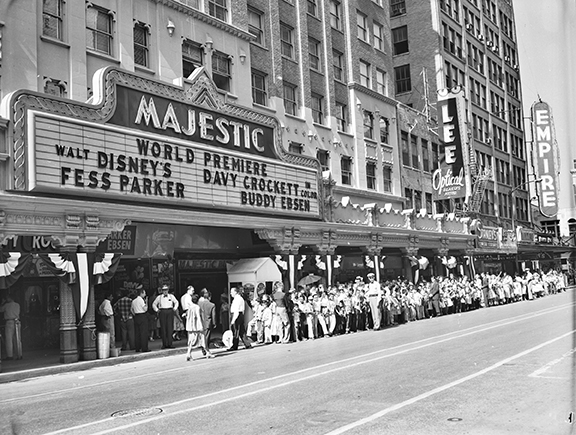
When did you first get a TV?
It was black and white. It was very big. That was 1952.
Do you remember when President Kennedy was assassinated?
Oh my god… pobrecito… It was all over the TV. I remember the pictures and everything where they show him from when they shot him. I remember seeing that on the TV from when he was shot. He was a good president. Very very good president.
How segregated was San Antonio between whites and coloreds?
The poor colored people weren't allowed to go into the restaurants and neither the Mexicanos. I felt sorry for the people from Mexico. We have Koreans, Japanese, Vietnamese, Syrians. But they don't like the people from Mexico. It's terrible. I've seen them trying to cross the river with packs on their back. And I remember some guy, from when we were coming from Laredo or somewhere, hiding under the trees to get to this side. No peace. It seems there will never be peace. Never.
Do you remember when they sent men to the moon?
Oh yes! I saw it on the TV. It was terrible when it exploded.
Oh no! That was the Challenger Disaster. I mean when men walked on the moon.
Oh that. Yes, I saw that on the TV.
Did you believe it?
Yes. If you ever look at the moon real closely, you can see land where you can walk on it.
What did you do after you retired?
I just stayed home. Cook and clean. We used to go out dancing. It was about six couples of us that would go all the time. When I was young too. Lots of beautiful dancing and good music played by good bands. Not that rattling stuff. When Marcus [my grandson] starts rattling on the guitar, I tell him "If you don't connect that electric guitar, it doesn't play." "I know Nana." The acoustic guitar will always play! And the deeper the acoustic, the better the tone. It's like the piano. [My] Grandpa Blake DeWitt had an acoustic guitar and he showed Uncle Blake, his son, how to play the guitar. He had a Gibson guitar and that's one of the best. So I told Marcus to go to a pawn shop on Grayson cause they had all kinds guitars hanging up. But when he went, they didn't have no guitars no more.
What kind of music did you listen to when you were young?
Oh romantic music... Stardust is my favorite. I listened to Glen Miller and Benny Goodman and Louis Armstrong - all those good bands! [Glen Miller] died coming from Europe. The plane fell into the ocean and died. I don't remember the year but I remember I was so upset. He was one of the best bandleaders. That was dancing music. Not this "guh-dum guh-dum" where you don't even know what they're playing. There's nothing better than music. It makes you feel.
What did you think of music that came later - when you got older? Like Elvis and the Beatles.
Elvis Presley? Well he was alright. I went to see his mansion in Memphis. I saw his plane and all the things inside. Like the faucets, everything was nothing but gold. But the Beatles… No, I didn't like them.
What movies did you like to watch?
Oh I very rarely went to movies. I remember when I saw that movie about the priest… Thorn Birds! I loved that movie and The Life of Suzie Wong. Those were good movies.
How were things different from when you were a child?
Oh goodness heaven… There's too much difference in this world! You know what I do? I don't see the news. It depresses me to see children abused, a lot of shooting, and all these teenagers now that get put into custody. Young kids! Car-jacking, kidnapping… All that depresses me. I don't wanna see that because I think about my grandchildren. I don't know what's wrong with the world now-a-days. It's just not like when we were young. We used to go out and now when you go out, you don't know if you're coming back. You need to be careful, mijo.
How did you meet your husband?
Oh that's romantic… You know, we had a platform. Real big where they used make dances - over by where Southside High School is now. Everybody used to go there, you know, boys and girls that we knew. One's name was Philippe Guerrero. He was a wonderful dancer and I used to dance all the time with him. And one day he told me, "I want to introduce you to a friend of mine." I said "Okay." He took me to the car and it was Dave. He was playing the guitar and he was playing Stardust. But the thing about this was I was baptized at El Carmen, not over here [at Espada]. And I met him over there at El Carmen. Well we became friends but not my boyfriend. Just a friend. Then I didn't see him for quite a while. Then Phillip told me "Dave wants to take us to the movies." So I went to the Majestic. And there's where we started dating but not steady. When [my cousin] Elena got married, I wasn't going steady with him. Elena got married and we went to leave her in Cuero, Texas. We brought [my cousins] Rosie, Lydia… And when we went over there, it was the 16th of September. They called it Dieciseis de Septiembre where you'd celebrate. And when we got there, they had a big dinner! One of the girls said, "You all wanna go to the dance?" I said, "YES!" I had the best time! I danced and danced and danced! And I was going out with Dave but not steady. So when we were coming back, we got lost on the way home. We got here at 3 o'clock in the morning. [laughs] We all laughed because we had to go back. Then - I was working at Mission Finance. And this guy comes - he came all the way from Cuero because he wanted to date me. And I said, "No. I'm dating. I have a boyfriend." That's how it happened. That was in the 40s. I married him in 1942, October the 17th. And we only were three days married when he was drafted and he left.
Do you remember how he asked you to marry him?
Oh yes. When he got drafted he said, "We're gonna get married before I leave." And that's what it was. That's the way we got married. We got married here at the [Espada] church. But I didn't have a big wedding. There was no time.
What did you like to do with your family?
We'd get together. It's the best feeling. The immediate family would get together all the time and be on good terms. We all wouldn't fight and be at peace with each other. It was a blessing. We were brought up like brothers and sisters. Uncle Joe's kids, my cousins, were like brothers and sisters to us. We were all very close. One time we went to the valley and I took a box with a coffee pot and I took the milk, powdered milk, and I took sugar and everything. And we stayed at the Holiday Inn. I'd make coffee and say "Are we all up?" Because I'd make the coffee and go downstairs and get cinnamon rolls and we would eat. Then we landed at Garner State Park. Uncle Bob had a portable barbeque and we ate some ham steaks and eggs and we had a good time. I know every little town over there.
How do you want yourself to be remembered?
I want to be remembered that I got along with all my relatives and friends. I don't see them often but I'm very glad to see them when I see them. I love them. I don't like to have arguing. I want peace in the family. When I see them, I'm very happy to see them. Most of the time, you only see them at funerals or weddings. But I'm glad to see them. And they come and hug me or want me to give them the sign of the cross.
Did you ever think you were going to live to be 101?
No, mijito. [laughs] God has me here for some reason. I never cease praying. That's my life. And sometimes I cry because I remember so many things... [cries] But most of it is good. Like sometimes I remember things from the past that are very… [cries] …very heartbreaking.
But you're happy now?
Oh yes. I'm happy with my life. [crying continues]
I brought my instrument! [plays "Happy Birthday" on the alto saxophone]
[crying stops] [claps] Beautiful! That was beautiful!
